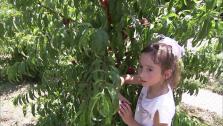Archive for the ‘parenting’ Category
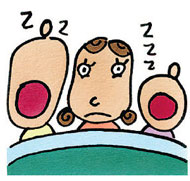
AJGpr client, Dr. Nina Shapiro, the Director of Pediatric Otolaryngology and an Associate Professor at the David Geffen School of Medicine at UCLA says snoring can be caused by enlarged tonsils or adenoids that block the airways. If you don’t breathe properly at night, you don’t get enough oxygen to your brain.
Watch the segment on The Doctors here.
Why Your Kid Whines — and How to Get Her to Stop iVillage Turns To Betsy Brown Braun For Strategies
2012

Why Your Kid Whines — and How to Get Her to Stop
Bonnie Vengrow posted and article on children and whining on iVillage. To get some perspective on this developmental stage of childhood, she turned to my client, Betsy Brown Braun, child development and behavior specialist and best selling author of Just Tell Me What to Say and You’re Not the Boss of Me.
Here are the “expert strategies to stop your kid’s whining.”
You and your kiddo are chugging along nicely when, one day, she figures out that if she raises her voice, repeats herself over and over, and tosses in a few tears — presto! — she’ll get what she wants. Her latest discovery may mean frustration, aggravation and plenty of headaches for you. But like most developmental phases, whining can be temporary — so long as you nip it in the bud. We turned to the experts for their take on whining, and got tried-and-true advice on how to stop it fast.
A little perspective
Whining is about as aggravating as nails on the chalkboard and can make even the most level-headed mama want to scream. It’s the most annoying sound on earth, but it actually serves a good purpose. “It’s an all-important part of beginning to grow up,” says Betsy Brown Braun, child development and behavior specialist and author of Just Tell Me What to Say and You’re Not the Boss of Me. “Whining is his way of figuring out who he is separate from you, the parent. He’s not doing anything that’s wrong or unacceptable. We have to change the ways we react to it and how we reabsorb it.”
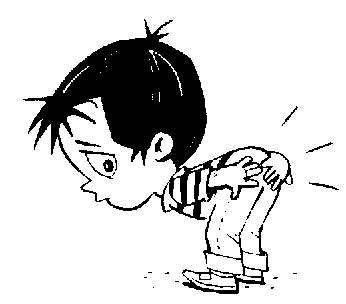
Back in June, my client, Betsy Brown Braun, blogged about spanking. I love what she has to say and wanted to share it with AJGpr readers.
Betsy is a parenting expert and the author of two best-selling books Just Tell Me What To Say and You’re Not The Boss Of Me.
To If Nor Spanking, Then What?
Seems like almost every parent today knows that spanking is verboten. Everyone except that parent who says, “My father spanked me, and I turned out fine.” To him I want to say, You don’t remember how you felt while you were being spanked—the terror, the helplessness, the anger.
Working with parents for 40 years has demonstrated to me that parents spank because they don’t know what else to do that “really works.” It is out of their simmering frustration that they resort to harsh physical actions like spanking, slapping, even pinching, or holding a shoulder just that much too tightly. But it’s all spanking. And it screams helpless parent, regardless of the child’s age, tot or tween. You are showing your weakness.
Children do not need to cry, to be hurt, to be shamed, or to shout “uncle” in order to learn the lesson you are trying to impart. The discipline (from the Latin root word which means learning or teaching) that is needed should be just that–the lesson that teaches not to do that again. It is a lesson that cultivates self-discipline. The child needs to learn; he doesn’t need to be hurt or humiliated. In fact, a child in those heightened emotional states will not learn. Rather, he will be focused on his anger at you, what a mean, bad daddy you are, not even thinking about what he did.
Here are some tips for what to do when you feel like spanking:
- Get a grip on your own anger. Grit your teeth and admit that you feel like walloping your kid. Then commit not to do it.
- Remind yourself that this is an opportunity for you teach and for your child to learn. Often children have to do the wrong thing on their way to doing the right thing. And yes, for that there is a consequence.
- Let the child know that whatever the behavior was, you are stopping it. Remove the child from the scene of the crime.
- Say as little as possible. “There is no throwing balls in the living room!” using your low, slow, icy voice. Mean business.
- Remove and isolate your child to a safe place away from you and the scene. No words.
- The key is to DISENGAGE. Do not give your attention of any kind, negative or positive. Nothing.
- When you have both come back to planet earth, even as long as an hour later depending upon the age of the child (the younger the child, the shorter the time), do your revisit.
- Have a short, direct conversation (and it may be one sided) about what happened and what will happen as a result.
- For children seven years old and younger, have your logical consequence ready to impose. (Logical consequences are directly related to the misbehavior.) You showed me that you do not know how to use balls responsibly. So, you will not be able to use balls of any kind for the rest of the week. If necessary, be prepared to take the rest of the family out to play ball. He’ll feel it! So sorry you can’t play with us
- For children older than seven, in addition to the logical consequence, there might be a removal of privileges, or he might have to earn the money to help pay the cost of replacing the window. He gets it.
- Know that it takes time for the lesson to take hold. Much like microwave cooking, it needs a standing time to begin to sink in.
- There is no one size-fits-all answer. Your response must be crafted to the particular child and the infraction.
- Remember, parenting by imposing fear is neither healthy nor effective.
You and your child need to be on the same team. You are both trying to get him to the same place, the place of making thoughtful, good choices for himself. And the very first chance you get, catch him doing the right thing. Praise works better than punishment and a whole lot better than spanking.

My client, Green Living and Holistic Lifestyle expert Randi Ragan, was a guest on KABC to share 5 Tips to Teach Kids About Going Green. Randi is the founder/Owner of GreenBliss EcoSpa, LA’s ONLY Award-winning eco-friendly mobile spa.
Here is the clip and transcript.
As you prepare your children for the new school year, maybe it’s time to try something new, like “going green.”
We met up with green living expert Randi Ragan, who gave us five tips to get you started. First, try to create “zero trash” lunches, which means using a lot of reusable or re-washable containers.
“Zero waste lunch is about figuring out how to pack your kids lunch to school without creating trash at the end of it,” said Ragan.
Stackable tins are a great “green-friendly” choice. But those thin, plastic sandwich bags are hard to replace. Instead, try washable sandwich bags kids can use every day. Also, lose the plastic silverware, choose metal or branch out with bamboo chopsticks.
Next up, lose the batteries. Ragan said 14 billion batteries are thrown away into landfills every year in America.
“So anytime you can help them find a way to play and be creative without a battery, it’s a win,” said Regan.
Powering off those games might be tough, but arts and crafts will send their imagination soaring. Or try to create a fun project, like documenting the ecosystem in their backyard.
Ragan also stresses the importance of getting your children involved in the ecosystem around them. By observing the plants, animals and insects, they can get an appreciation of the environment.
Start an organic garden. You’ll end up with great homegrown food and the opportunity to teach your children about how plants grow.
Finally, pay attention to ingredients and read the labels on food and beauty products.
“It gets you thinking about what is going on your skin, and what is going in your body,” said Ragan. “It’s mostly about teaching them to just engage and not pushing it so much, but just actively nurturing their curiosity.”

My client, Dr. Nina Shapiro, Director of Pediatric Otolaryngology and an Associate Professor at the David Geffen School of Medicine at UCLA has her say about parents choosing or not choosing to vaccinate their kids in a recent blog. Dr. Shapiro is the author of Take A Deep Breath: Clear the Air for the Health of Your Child.
“Nut-free”, “Peanut-free”, and the latest and greatest: “Nut sensitive”. The rage in preschools and elementary schools across the country is to protect our nut-challenged children from nut exposure, even if it means not exposing them to nuts in the same building or playground, to minimize their risk of life-threatening allergic reactions. Allergic concerns have expanded beyond nuts, to gluten and dairy, to the degree that some schools now prohibit ‘powdered cheese products’, to protect children who are especially dairy sensitive. Some schools are not ‘nut-‘ or ‘dairy’-free, but are merely ‘nut’ or ‘dairy’-sensitive. I hope that this means that they take special precautions, beyond just discussing the inner feelings and emotions of those ‘sensitive’ to certain foods.
Please don’t take any of this as sarcasm. I am fully aware that food allergies are bona fide, and when they occur to the point of danger, kids can die, or nearly die, from a severe food reaction. An elementary school girl recently died of a previously undocumented allergic reaction recently, while at school. So an institution’s decision to either ban or, well, ‘sensitize’, potential food allergens, for the greater good, becomes a public health issue, even on the small scale of a school’s microcosm. This is a good thing. By not sending your child to school with their favorite PBJ or cheese puff, you are protecting others. Not necessarily your nut-insensitive child, who happily gobbles powdery cheese products and peanut butter cups in the comfort of your BPA-free hybrid vehicle, but others. Your child’s sacrifice for the greater good is worth it; seeing a small friend go into anaphylactic shock can scar a tyke for life, not to mention the allergic child himself. And this protection of others is important. Equally important is teachers knowing and being re-certified in CPR (which, by the way, might have saved that elementary school girl, had it been initiated before paramedics arrived). Maybe even as important as getting immunized.
Is there a lunch table for the vaccine-sensitive? We promise not to serve nuts. I just wonder if schools would consider instituting ‘vaccine-free’ zones. You know, for the greater good? Just as we are protective of the nut-challenged from life-threatening reactions, what about protecting children from life-threatening illnesses? Public schools can mandate that all must be immunized, but do allow for exemptions, which are pretty easy to get. Many public schools report immunization rates of less than 50% of their students. Private and parochial schools can strongly encourage immunizations, but they cannot mandate that all must be immunized. Some private schools have immunization rates of less than 20%. Yes, that’s right a parent might pay $25,000 a year to a school where less than one in five of their classmates are immunized against life-threatening illnesses such as measles, polio, bacteria which cause meningitis, or pertussis (the one that causes whooping cough). In order for a school to be considered truly immunized, from a public health (or ‘greater good’) standpoint, that particular school’s immunization rate needs to be 90% or higher. Parents have varied reasons, primarily personal, why they choose not to immunize their children. Some parents are concerned about autism risk, even though all of the studies connecting the rise in autism with immunizations have been debunked. Some are concerned that their child’s body is too small to tolerate a large dose of so many vaccines at once, so they spread out the schedule recommended by the American Academy of Pediatrics (AAP) and the Centers for Disease Control (CDC) to create their own ‘tailor-made’ schedule. Some parents think that the illnesses kids are getting immunized against don’t exist anymore, so why bother getting immunized, since illnesses such as polio, measles, mumps, and tetanus have been eradicated anyway.
But here’s the reality: these diseases do exist, and we’re going to see more of them come back. I read about pertussis, the bacterium that causes whooping cough, when I was in medical school. We would learn about this horrible respiratory disease and how it afflicted and took the lives of so many of those poor shlubs from the 1930’s, who hadn’t figure out prevention yet. We would read about them as if they were some primitive Neanderthal tribe, barely able to put two sticks together to make fire. Occasionally a crusty old professor would tell tales of the ‘days of whooping cough’. Ho hum. Well, it’s back. Not so ho-hum anymore. The hundred-day cough, which became an outbreak in California and other states, resulted in many children dying. During the tail end of medical school, I saw H. flu infections, a bacterium that caused severe respiratory illnesses, meningitis, eye infections, and blocked breathing. The miracle of the vaccine for H. flu, which became widely used in 1999, nearly wiped it out. Until now. It’s back, too. Dr. Jonas Salk, the co-creator of the polio vaccine, spoke at my medical school graduation. Polio killed millions, and paralyzed millions more. Thank you, Jonas Salk, and your sidekick Albert Sabin. We haven’t seen polio outbreaks in the U.S. since the 1950’s, when Salk and Sabin’s vaccine began being given widely. Well, we haven’t seen outbreaks yet. We might have to wait until the immunization rates drop some more. But let’s hope not. Polio, whooping cough, meningitis, and measles, to name a few, are still out there – and they could once again be coming to a school near you.
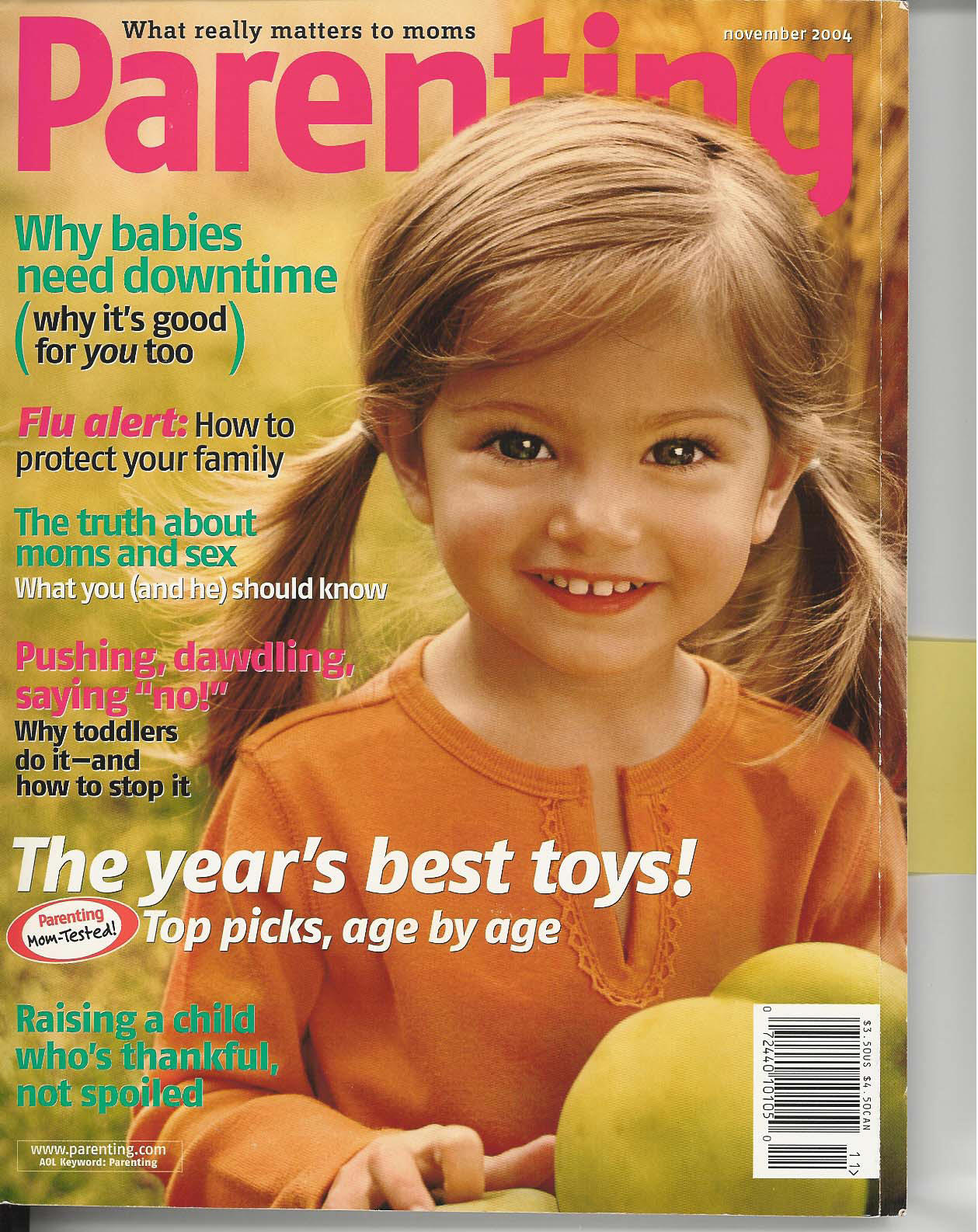
Writer Suzanne Schlosberg reached out to several parenting experts for her story in Parenting magazine on “How To Keep Control And Your Cool – While Your Kids Test Limits Every Which Way They Can.” My client, parenting expert Betsy Brown Braun was among the experts who weighed in on this important topic.
For the full story click here.
Betsy is the best selling author of award winning Just Tell Me What To Say and You’re Not The Boss Of Me,
Dr. Fran Walfish, Psychotherapist to Expert Comment on Governor Jerry Brown Signing Senate Bill 1172
2012
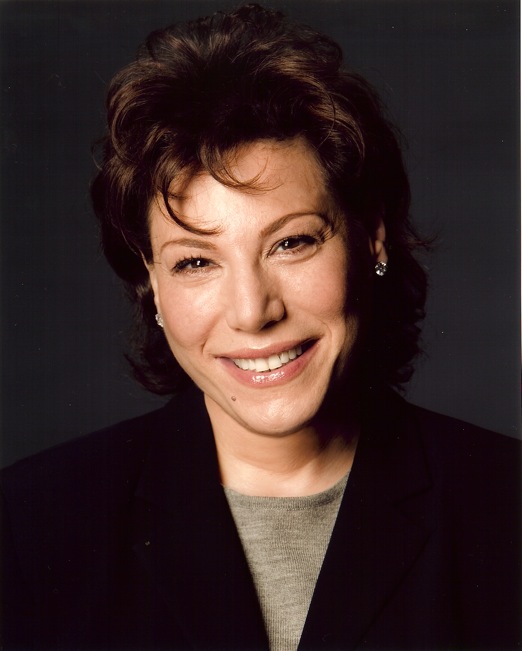

Heidi Smith Luedke reached out to my client, Fran Walfish Psy.D., a Los Angeles-based clinical psychotherapist for her piece in Calgary’s Child about why kids tattle and how to respond.
Here’s the full story:
Nobody likes a tattletale – not even their mother or father. If your child’s playdates and sleepovers are punctuated by whiney reports of misdeeds and injustice, you may be tempted to clear your kid’s social calendar. Not so fast. Interactions with siblings and friends allow kids to practice communication, negotiation and compromise. And dissatisfaction is part of the process.
“In early childhood, it’s normal for kids to share social problems with parents,” says psychologist and school consultant Michael Thompson, Ph.D., author of Best Friends, Worst Enemies: Understanding the Social Lives of Children. At times, they legitimately need our help resolving disputes and soothing hurt feelings. But by second grade, the prohibition against inviting adults into social conflicts is clear. “Kids who tattle get labelled – tattletale, squealer, snitch – and left out,” says Thompson. Bringing infractions to an adult’s attention sets your kid up for friendship failure.
Why kids tattle
Parents might assume kids tattle because they don’t feel empowered to stick up for themselves, says Fran Walfish, Ph.D., a child and adolescent psychotherapist. That’s not true. “Kids tattle because they’ve developed a strong sense of right and wrong and they start policing other people,” says Walfish. Tattletales suffer from an overdose of conscience.
“Tattling at home may also be rooted in sibling rivalry,” says Walfish. An older child might feel they are held to a higher standard than their younger siblings, or that they are disciplined more severely. And they may be right. “Parents need to take an honest look within,” says Walfish. “If you are harsh and judgmental with your children, they’ll act the same way with peers.”
How to respond
It seems obvious: giving attention to a child who tattles will only reward them for tattling. But experts say parents shouldn’t dismiss kids’ reports or tell them to “get over it.” Sometimes kids who tattle just want a safe place to share their concerns.
“Kids won’t say, ‘I need you to listen to this and be outraged on my behalf and then do absolutely nothing,’” says Thompson, “but 90 per cent of the time that is what they want.” When your child comes to you with a story, listen, accept, acknowledge and bear it. Ask questions about how your child plans to handle the situation – that will bring out their inner resilience.
Tattletales who judge and blame are usually more focused on their peers’ behavior than their own. “Position yourself as a mediator,” says Walfish. Kids should present their concerns to each other, not to authority figures. Give each child a chance to speak their piece without interruption or name-calling. You want them to learn how to wrestle with a conflict face-to-face without demeaning the other person.
“This won’t come easy,” Walfish cautions. It is common for parents to get drawn into the dialogue. Step back emotionally so you can coach your child through it without taking sides.
After each child has a chance to talk, ask, “How could you work this out?” Listen to kids’ ideas for addressing the problem. If they don’t have any, offer some suggestions. Let kids choose how to proceed. “The resolution is not nearly as important as the process of working it out,” says Walfish.
Except in extreme circumstances – like when one child is intentionally hurt or belittled – don’t take sides or punish the other child for what a tattletale reported. “Play the role of supportive consultant, not hired gun,” says Thompson. You’ll reinforce the tattler if you act on the information they offered.
Chronic tattling can leave parents feeling frazzled. It may help to arm yourself with kind, matter-of-fact phrases you can use in response, says Walfish. Say, “There are only two grown-ups in this house, and it’s our responsibility to enforce the rules.” Assuring ‘kid cops’ that you are on the job may reduce their need to patrol and shift their attention back to their own activities.
Practice compassion
Not all sharing is tattling, and there will certainly be times when you must intervene to protect your child. Be cautious in your assessment of the situation. “Parents are too quick to define peer behavior as bullying and to accuse other kids, parents or teachers of wrongdoing,” Thompson says. Rushing to judgment reinforces a child’s sense that they are a victim in need of rescue.
It’s usually best to diffuse hurt feelings with empathy instead of going on the offensive. Set the expectation that tomorrow will be a better day. Spend one-on-one time with your child doing something they enjoy. Loving attention can quiet even the noisiest tattletale.
Are gender-neutral toys much ado about nothing? Psychotherapist Dr. Fran Walfish Weighs In
2012

In a recent article by Pamela Stitt in TODAY’S MOMS, my client Fran Walfish, a Los Angeles-based clinical psychotherapist who specializes in children and families shared her views on gender-neutral toys.
Dr. Fran Walfish is the author of The Self-Aware Parent (Palgrave Macmillan).
Here is the full story.

A neighbor frequently asks for help with her elementary-age daughter: rides, baby-sitting, meals. But she never reciprocates. Do you say no, knowing the child is the one who will suffer?
My client, Dr. Fran Walfish says, “You should continue to be generous and help this defenseless child. Someone else might say that saying no is creating reasonable boundaries, but it all depends on your point of view.
“I treat many adults who were raised alone,” Walfish says. “They always talk of one special person who saved them psychologically. Perhaps it was a grandmother, uncle, schoolteacher, the parent of a classmate. As a neighbor to this limited mother and her elementary-age daughter, you have the privileged opportunity to be that special person and rescue this child from a world of isolation.”
You can read the full article here.
Dr. Walfish is the author of The Self-Aware Parent: Resolving Conflict and Buiilding a Better Bond with Your Child.


